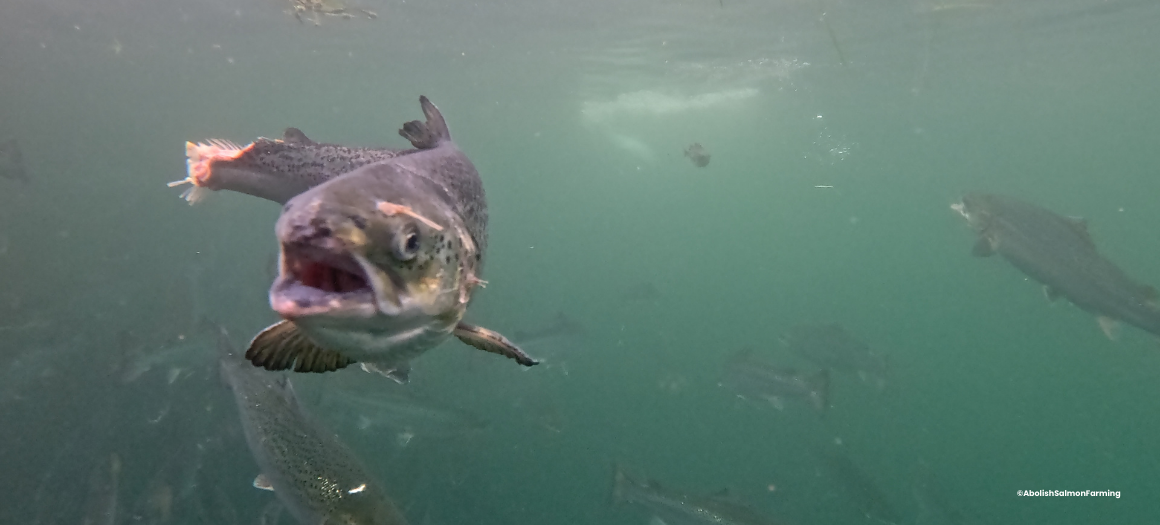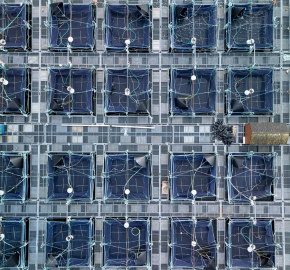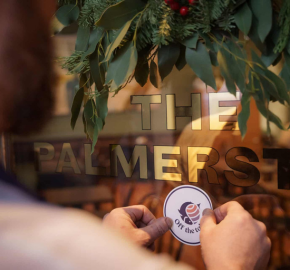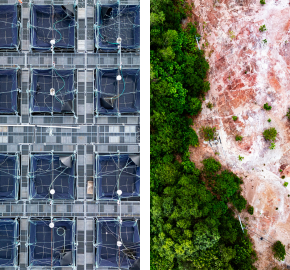Wimbledon serves up farmed salmon from company cautioned for its environmental record

WildFish (formerly Salmon and Trout Conservation) has accused Wimbledon of contravening its own food guidelines by sourcing its fish from Loch Duart Ltd, a salmon farming company with a poor record of control over sea lice parasites and high levels of fish mortalities on its farms.
The Championships stresses on its event website that it “[sources] responsibly, working with suppliers to ensure the very best for our … environment.” However, Loch Duart Ltd’s flagship farm at Clashnessie Bay in north-west Sutherland, Scotland, topped the league of the worst performers for the control of sea lice parasites during 2021.
Sea lice have a number of negative environmental and welfare impacts on salmon farms and surrounding waters. They graze on the skin and mucous of the farmed salmon; when the lice disperse from farms, they infect and kill juvenile wild salmon and sea trout by eating the fish alive. Recent data has shown that wild salmon and sea trout catches in Scottish rivers last year were the lowest since records began in 1952, and in January the Scottish Government agreed that the wild salmon population was in crisis.
“It’s time to end the greenwash.”
Andrew Graham-Stewart,
Director of Wildfish
Loch Duart’s Clashnessie Bay site was the only salmon farm to have received an Enforcement Notice from Scottish Government for failure to control sea lice satisfactorily during the first nine months of 2021. In fact, two such Enforcement Notices were issued by Scottish Government – in June and September.
Between weeks 1 and week 40 2021 (after which the site was finally harvested out) the average weekly declared count of adult female lice per farmed fish at Clashnessie was over 5.00 (10 x the industry’s Code of Good Practice level for February-June and 5 x the Code of Good Practice level for July-January).
During eight weeks the declared count was over 6 (Scottish Government’s enforcement trigger level), peaking at 10.47 in week 33 (that of 16 August); the average declared count between weeks 31 and 40 was 8.67.
A quarter of fish at this farm died during the same eight-week period. Another Loch Duart farm in the Sound of Harris, according to industry data published in December 2021, had a mortality rate of over 50% across one production cycle which concluded in 2021.
Last month, at least two Loch Duart farms were reporting high lice numbers. At the company’s site in Lochmaddy, North Uist, the company twice reported over 5.00 lice per fish in May (10 x the industry’s Code of Good Practice level for February-June).
Andrew Graham-Stewart, Director of Wildfish said:
“Wimbledon should not be supporting a company that appears to be either incapable of maintaining or unwilling to maintain sea lice parasites within anything like acceptable levels – thus displaying scant regard for its environmental obligations.
“Additionally, the eye-watering level of mortalities on some Loch Duart farms is both an environmental and animal welfare scandal.”
Loch Duart Ltd stopped calling itself “the sustainable salmon company” following a complaint to the Advertising Standards Agency in 2019.
Mr Graham-Stewart continued:
“For Wimbledon to serve farmed salmon, the product of what is, in many people’s opinion, a fundamentally unsustainable industry, shows bad judgement, but to source it from a company with such poor environmental credentials is inexcusable.”
Further information
For all enquires, please contact directorscotland@wildfish.org
Find out more about our campaigning to ban open-net salmon farming in Scotland.




Fully support your views
Absolute disgrace that Wimledon should support such an environmentally damaging company.
100% agree. Appallingly poor judgement by Wimbledon.